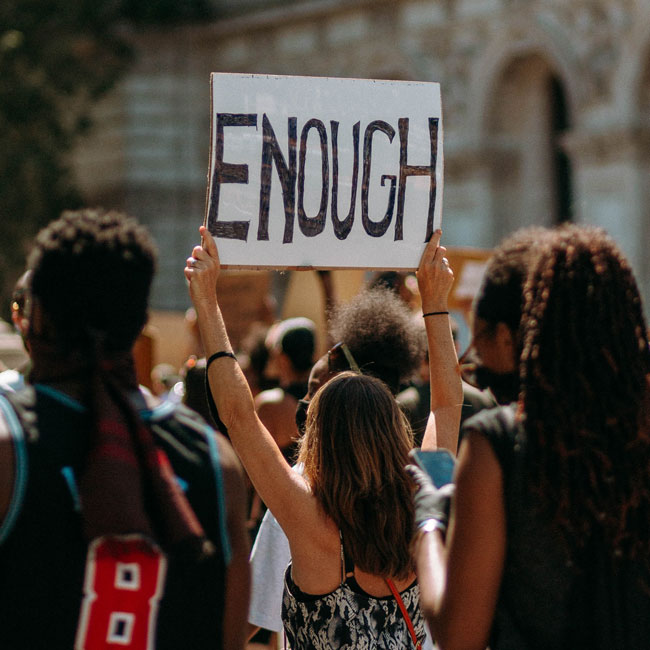Intimate relationships matter: The need for a fairer family migration system in Australia

Intimate relationships matter: The need for a fairer family migration system in Australia
Opinion + AnalysisPolitics + Human RightsRelationships
BY Dr Luara Ferracioli 17 AUG 2023
A liberal society like Australia should recognise that many intimate relationships matter, and in its approach to immigration the federal government should try as much as possible not to prioritise some relationships over others — unless it has a very good rationale for doing so.
A recent report by the Scanlon Foundation has shed some important light on how the current family migration scheme in Australia is failing foreign-born citizens, permanent residents, and their adult parents who want to join them in Australia.
According to the report, there are almost 140,000 Australian residents waiting between 12 and 40 years to be permanently reunited with their parents. The best route is to fork over $48,365 per parent. This contributory visa currently has an expected processing period of 12 years. The cheaper, non-contributory version of this visa costs $4,990 per parent and the application may take 29 years to process.
Since the Parkinson review into Australia’s migration system was established in September 2022, much of the public commentary has focused on the unfairness of leaving adult citizens and their parents in limbo. The expert panel itself puts it bluntly: “Providing an opportunity for people to apply for a visa that will probably never come seems both cruel and unnecessary.”
There is no doubt that the government urgently needs to reform its approach to migration, and visas need to be processed within a reasonable time-frame so that prospective immigrants can move on with their lives. There are, however, two other unfair elements baked into the Australian family migration system that also need addressing.
First, there is the cost of the contributory visas. A visa of almost $50,000 only allows affluent foreign-born citizens to bring their parents to Australia. But if this visa is meant to promote the interest we all have in enjoying territorially located intimate relationships in an on-going fashion, then it is grossly unjust that the wealthy are given a much better shot at having that interest protected.
The second unfairness is perhaps even more under-appreciated. Why prioritise parents as opposed to other adults that citizens and permanent residents might care deeply about? Whereas some are no doubt very close to their parents, others are very close to an uncle, an aunt, or a third-degree cousin. Whereas some individuals long to spend more quality time with a parent, others would really like to live closer to their best friend.
This point becomes clearer when we recognise that sometimes friends are much more emotionally dependent on one another than immediate family members. A citizen who would genuinely lead a much better life if her best friend was allowed to move to Australia then lacks access to a visa that allows a fellow citizen to bring an adult parent into the country, irrespective of how emotionally close they are.
My point is not that the government should assess the level of intimacy between an adult citizen or permanent resident and a parent.
As a liberal society, we need to respect people’s right to privacy, and be extremely careful not to give bureaucrats power to pass judgements about people’s lives in ways that are prone to be informed by sexist, racist, and classist biases.
My point is only that, in a liberal society like Australia, many intimate relationships matter, and the government should try as much as possible not to prioritise some relationships over others unless it has a very good rationale for doing so. Ultimately it was this important requirement that saw many commentators object to Victorian premier Dan Andrews’s exclusion of friends from the remit of the COVID bubble in 2020, and why at some point the state of Victoria pivoted to allowing friends to visit each other during lockdown.
A fair alternative to an unfair immigration system?
But short of completely opening our international borders, is there a solution available to the Australian government? As I see it, the federal government can have a broader intimate relationship visa that is available to all citizens and permanent residents at a reasonable fee. Because the number of interested parties will be very high, the government can then combine that visa with a lottery scheme that gives every adult citizen and permanent resident an equal chance to bring someone they care deeply about to Australia.
In response to suggestions that a lottery scheme should be taken seriously, the author of the Scanlon report writes:
“Just like the faint hope that visa processing times will be faster than anticipated, the slim chance of winning a spot in the lottery will leave families banking on dreams, rather than adjusting to the realities of their situation and fully settling in Australia.”
As someone who has parents overseas, I don’t see why this would leave me “banking on dreams”. We all understand how lotteries work, and we all understand that when everyone has an equal interest in accessing a good or opportunity — in this case, reunification with a loved one — but that good or opportunity cannot be provided to everyone, a lottery may be the only fair way to go about it.
Australians have no appetite for open borders, so we need to come up with a fair way to run our migration schemes. In a world full of refugees whose lives are at risk, it is hard to show that an injustice has taken place when adult citizens are prevented from bringing a parent to Australia. At the same time, if some parents will be allowed to join their adult children in Australia on a permanent basis, we better have a fair system that gives all citizens and permanent residents an equal chance to reunite with someone they care deeply about.
This article was originally published by ABC Religion & Ethics.
Ethics in your inbox.
Get the latest inspiration, intelligence, events & more.
By signing up you agree to our privacy policy
You might be interested in…
Opinion + Analysis
Politics + Human Rights
How we should treat refugees
Explainer
Politics + Human Rights, Relationships
Ethics Explainer: Gender
Opinion + Analysis
Politics + Human Rights
How far should you go for what you believe in?
Opinion + Analysis
Health + Wellbeing, Relationships
Ethics Explainer: Naturalistic Fallacy
BY Dr Luara Ferracioli
Luara Ferracioli is Associate Professor in Political Philosophy at the University of Sydney and ARC DECRA fellow. She was awarded her PhD from the Australian National University in 2013, and has held appointments at the University of Oxford, Princeton University, and the University of Amsterdam. Her first book Liberal Self-Determination in a World of Migration was published in 2022 with Oxford University Press, and her new book Parenting and the Goods of Childhood is forthcoming (with Oxford University Press).
Agree to disagree: 7 lessons on the ethics of disagreement

Agree to disagree: 7 lessons on the ethics of disagreement
Opinion + AnalysisRelationships
BY Dr Luara Ferracioli Dr Sam Shpall 12 APR 2022
Senior Lecturers in Philosophy at the University of Sydney, Dr Luara Ferracioli and Dr Sam Shpall, participated in a live Ethics Centre conversation last year, discussing: how do we respectfully disagree? Ferracioli and Shpall concluded the following seven lessons, and how there can be value in disagreeing.
It often feels like we’ve lost a sense of principled disagreement – the idea that it’s OK if reasonable people think differently about something that matters.
In part, this is because we’ve changed the boundaries on what it’s OK to disagree about. Today, disagreement and debate about sensitive issues is seen by some as harmful or violent.
This can be interpreted as both attempts to de-platform bigoted ideologies, and also as those upholding the status quo having their power threatened and hiding behind a veil of civil society. It’s why subjects like Black Lives Matter and Critical Race Theory attract so much opprobrium – they speak directly to and challenge power, particularly latent and overt power dynamics.
We can all be guilty of treating disagreement as something that must have a winner and a loser. Whilst in other times disagreement has been used as a tool for everyone to learn; today, we disagree without any readiness to be persuaded.
When should we respectfully disagree? Should we always be open to having our mind changed? Can we remain friends with someone who we disagree with about things that really matter?
1. Genuine disagreement is not a bad thing.
There is value in good disagreement. Arguing well helps to flesh out all sides of an issue, bring to light underrepresented perspectives and contribute to solutions that benefit the most people; as in a true, functioning democracy and political system.
People occasionally conflate disagreement over an idea with a personal attack. This is a mistake, because disagreeing over issues and rationally debating the outcome – whether it’s who will do the dishes or how to allocate the national budget – is the best way to ensure a measured outcome that is in the best interests of the greatest majority. The more diversity of opinion there is in the discussion, the better the chance that the outcome will be balanced and representative of the greatest range of points of view.
The trouble lies in ensuring that the debate is measured, rational and charitable, and does not resort to humiliation and point scoring, as it often does in politics and personal disagreements. It’s important, also, to consider whether some disagreements of opinion are so fundamental that they license strong non-engagement moves like cancellation, de-platforming, and defriending; for example, boycotting a festival because of the presence on the bill of an act or speaker with whose ideas you disagree, or demanding their invitation to speak be withdrawn, such as in the recent case of Sydney Festival.
2. Genuine disagreement is often positively necessary for intellectual and emotional development.
Hopefully it’s already clear that cancelling and de-platforming people’s voices is not the way to stimulate a healthy culture of disagreement. Imagine I disagree with my partner about the wisdom of buying an apartment. One of us could simply acquiesce to make things more comfortable. This seems dangerous and unproductive. It makes it more likely that we will make the wrong decision, and it makes it more likely that at least one of us will feel ignored, disrespected and resentful. Notice how familiar the gendered dynamic is here in heterosexual romantic relationships: the controlling, all too often abusive man makes the decisions and expects or enforces compliance.
To make the right decision we both need to express our needs, wants and arguments clearly, and treat each other’s opinions with respect, working our way through the pros and cons to eventually reach a compromise based on mutual respect, not on one person overpowering the other.
In the case of the marriage equality debate in Australia, it came down to a national referendum, where the majority voted in favour of same sex marriage, proving pointless all the misleading ad campaigns and snarky media baiting of politicians and pundits.
3. Sometimes what people call “disagreement” is not disagreement at all.
Rather than disagreeing over philosophical ideas, sometimes people resort to the tactics of personal attack and outright hostility. If your aim is to humiliate a political opponent or win an election, you might well find that genuine disagreement and a contest of ideas is a less effective strategy than belittling them and misrepresenting their policies. (This goes partway to explaining political apathy, because it appears that many politicians are more interested in humiliating their opponent and scoring a point than having a real battle of ideas.)
Similarly, if your aim is to “win” a fight with your partner (and make yourself feel good, humiliate them, and put them in their place), you might find that genuine disagreement is a less effective strategy than personal attack. How often in a personal disagreement have you found yourself wanting to bring up a time in the past when the person has wronged you, that has no bearing on the current situation?
These analogies run quite deep, involving posturing, self-absorption, strong rhetoric, a lack of charity, no engagement with the “opponent’s” perspective, and so on. It’s not a true “disagreement” and contest of ideas, though, but a personal attack motivated by ego.
4. Sometimes what people call “offensive” and “hostile” is in fact disagreement.
In any interlocution, the first interaction always sets the tone: if it starts off hostile, that hostility will only escalate. You need to ask yourself: are you attempting a good faith engagement, or are you being defensive and stereotyping and categorising your opponent’s argument points?
Take, for example, the disagreement in the media and social media between podcaster Joe Rogan and musician Neil Young. Young removed his music from streaming service Spotify to protest its hosting of Rogan’s podcast, accusing The Joe Rogan Experience of spreading misleading information about Covid-19 vaccines.
Young followed up with a plea for Spotify employees to leave the company before it “eats up [their] souls”. Other prominent social media users then posted clips of Rogan using racial slurs. Rogan apologised for the slurs and said he will try, “in the future, to balance things out” with information on Covid. Spotify CEO Daniel Ek wrote, “based on the feedback over the last several weeks, it’s become clear to me that we have an obligation to do more to provide balance.”
5. Contemporary technologies (text messaging, emailing, social media) can make it harder to disagree well.
Communicating through the brevity of screens does not do much to help the art of good disagreement. With social media we’re getting less charitable with our opponents’ points of view and not always assuming the best version of their views. The way social media enables discussion is counter-productive – it’s so short, often anonymous, and you’re not looking at each other so you can’t see that your opponent is generally trying to have a good faith discussion.
Sarcasm and irony do not translate over text – consider how many times you’ve been misunderstood over email or text message. Abbreviating our vocabulary down into the bite size shapes of an emoji also engenders a poverty of language and ideas that benefits nobody. Consider Godwin’s law, that the longer an online discussion grows, the more the probability of a reference to the Nazis or Adolf Hitler reduces to zero.
6. Philosophical-collegial disagreement is a useful model for productive transformations of disagreement, from the personal to the political.
The philosophical model of disagreement has some valuable tools that should be exported for use in everything from intimate relationships, work environments and political culture to anonymous social interaction. One of the hallmarks of bad disagreement is a lack of charity – presenting your interlocutor in an unflattering light.
One of the things philosophers try to do at a university level is to reconstruct the best, most plausible, compelling version of the argument that one’s opponent is presenting. The principle of charity is related to a lot of other principles of agreeing well, such as the principle of intellectual humility, understanding that even one’s most cherished beliefs could be improved or better justified.
You want to win not because you put your opponent down but because you’ve made the best argument and your opponent can see why it should go your way.
7. Some disagreements are not worth having
The phrase ‘agree to disagree’ is a funny one that’s worth thinking about – it’s usually employed in the same way as phrases such as ‘it’s all subjective anyway’ or ‘everyone has their opinion’, not as a real move in a conversation but more as an ending to the conversation. Sometimes we need to end a conversation because it’s not getting anywhere, but sometimes we employ phrases like that to paper over the fact that we don’t have anything more to add to our argument.
But what about when one party to a disagreement rejects the foundational presuppositions of liberalism? For example, if someone thinks that men and women are fundamentally different and women deserve to be paid less than men, it might be very difficult to have a reasonable conversation with them when your foundational viewpoints are so radically different.
We have laws that prohibit certain forms of hate speech, of course, but these are hard to enforce and do not really help to answer many of the practical questions about how to interact with people who have these views.
We can’t give an overall theory about what to do in such cases, but we want to suggest that we steer clear of two dangers:
- failing to confront the genuinely inegalitarian, illiberal views; pretending that such views deserve the same sorts of consideration as liberal ones;
- and overstretching this response to illiberal exceptions.
Maybe you disagree with us about some of the things we’ve written, but hopefully you agree that there is value in disagreeing well.
Ethics in your inbox.
Get the latest inspiration, intelligence, events & more.
By signing up you agree to our privacy policy
You might be interested in…
Opinion + Analysis
Society + Culture, Relationships
Stoicism on Tiktok promises happiness – but the ancient philosophers who came up with it had something very different in mind
Opinion + Analysis
Relationships, Society + Culture
Meet Daniel, helping us take ethics to the next generation
Opinion + Analysis
Business + Leadership, Relationships
Facing tough decisions around redundancies? Here are some things to consider
WATCH
Relationships










